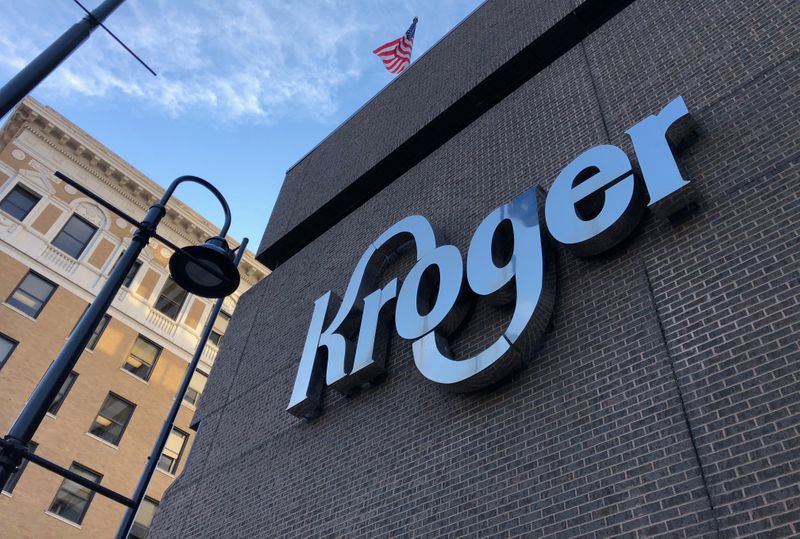(Reuters) - Kroger Co 's (N:KR) comparable sales surged about 30% in March as consumers stockpiled due to the coronavirus pandemic, and the grocer said it had borrowed $1 billion to boost its cash reserve as it prepared for any fallout from the health crisis.
The Cincinnati, Ohio-based company's shares rose about 5% after the supermarket chain also maintained its forecast for the year, especially when most of its rivals have scrapped their estimates due to the virus-related uncertainty.
Kroger, however, said it was being conservative about its expectations due to a fluid environment caused by the outbreak.
"It is too early to speculate what will emerge as the 'new normal' in food consumption at home or what the impact on sales will be in future periods," Kroger said.
The pandemic, which has killed nearly 4,000 in the United States, has led to panic buying, with several people thronging stores to stock up on canned foods and everyday essentials.
"After experiencing strong sales in February, the COVID-19 pandemic triggered a significantly greater lift in sales across both physical retail stores and digital channels in March," Chief Executive Officer Rodney McMullen said in a statement.
McMullen said sales in March tapered towards the end of the month, but remained higher than normal, as customers adjusted to the new dining, work and travel restrictions.
The company said it expects first-quarter profit to exceed its prior forecast and that it would stop additional share buybacks in the quarter.
Kroger said it also raised wages for hourly staff by $2 an hour until April 18. The average hourly wage for Kroger employees is $15 per hour.

It had preciously announced a one-time bonus for its frontline associates, payable on April 3.